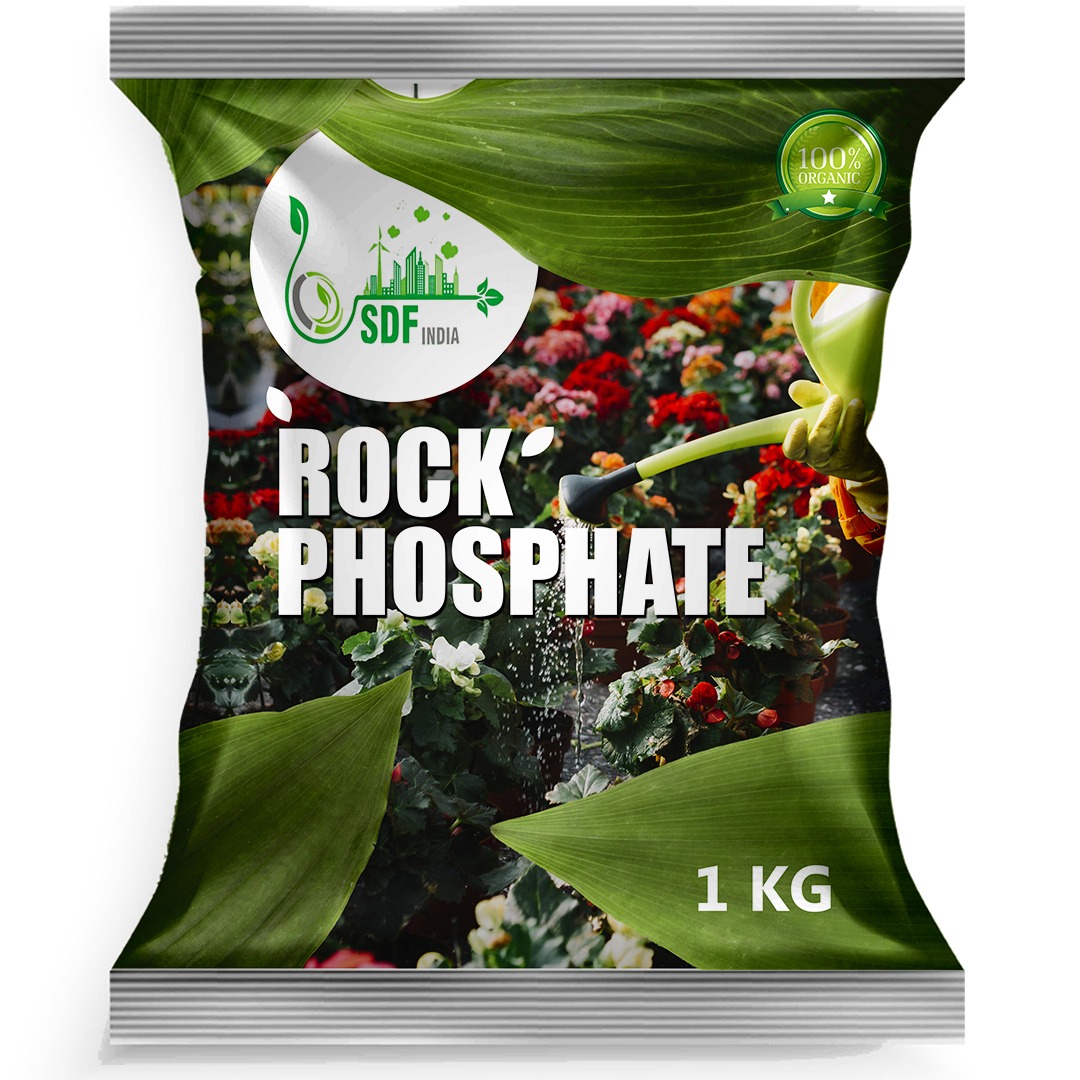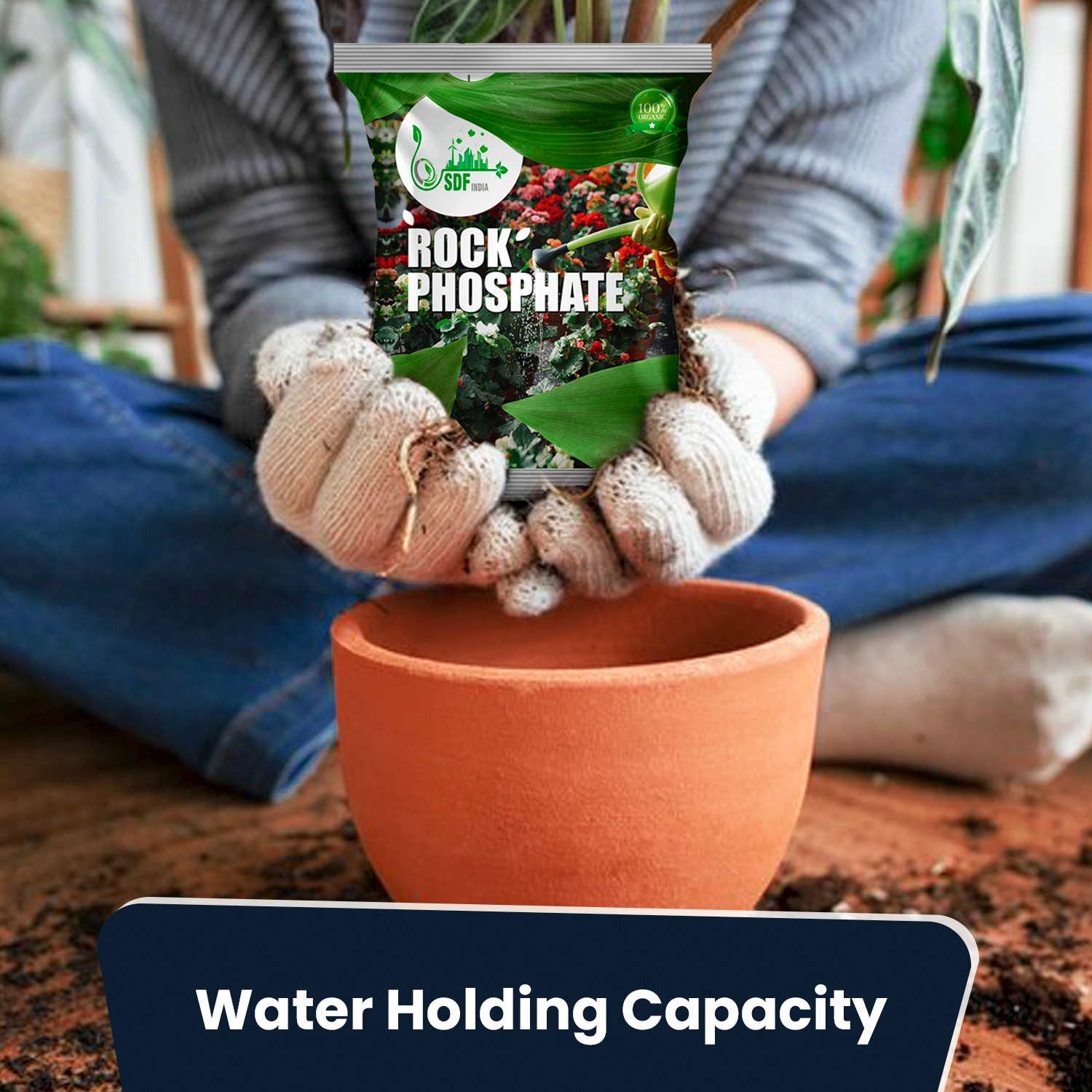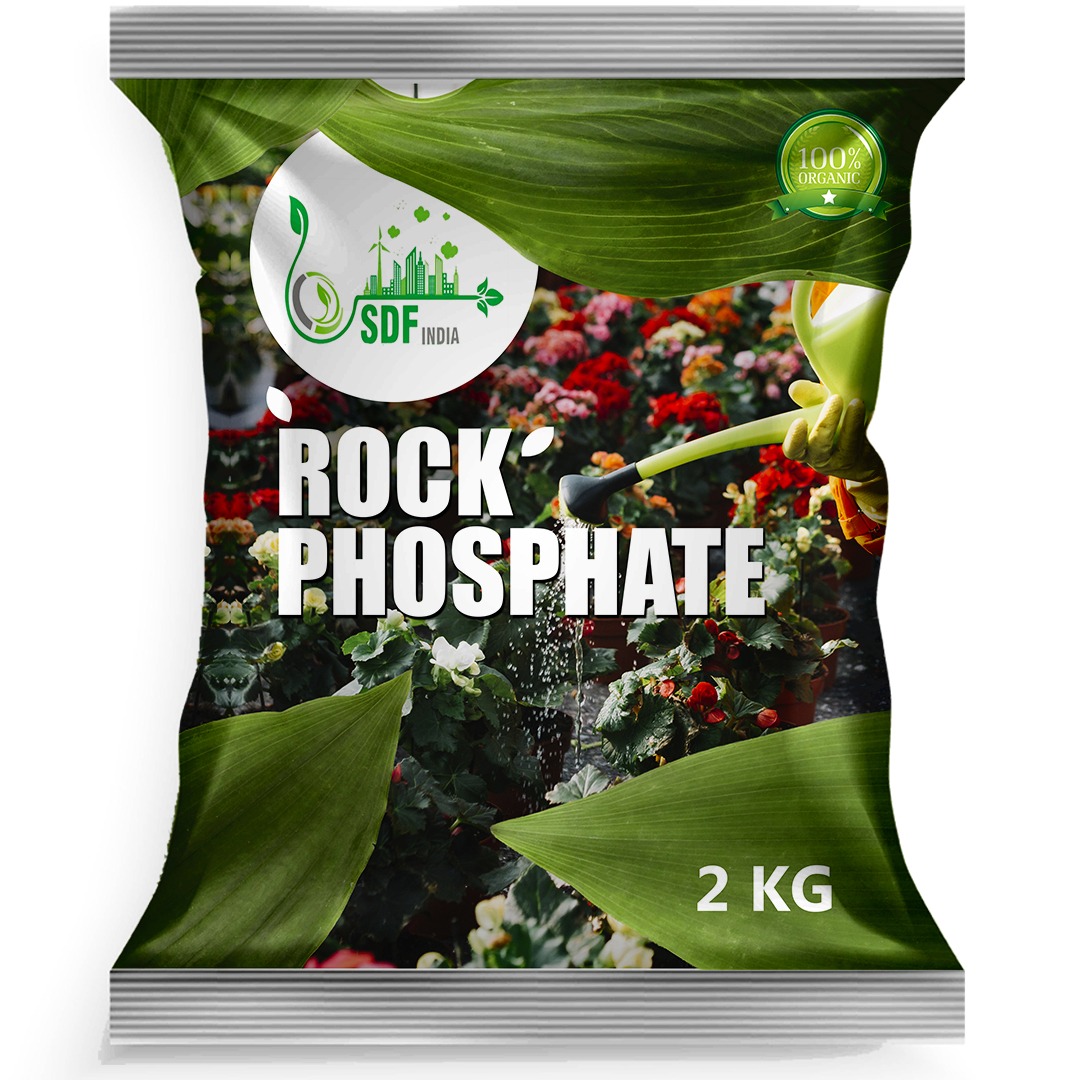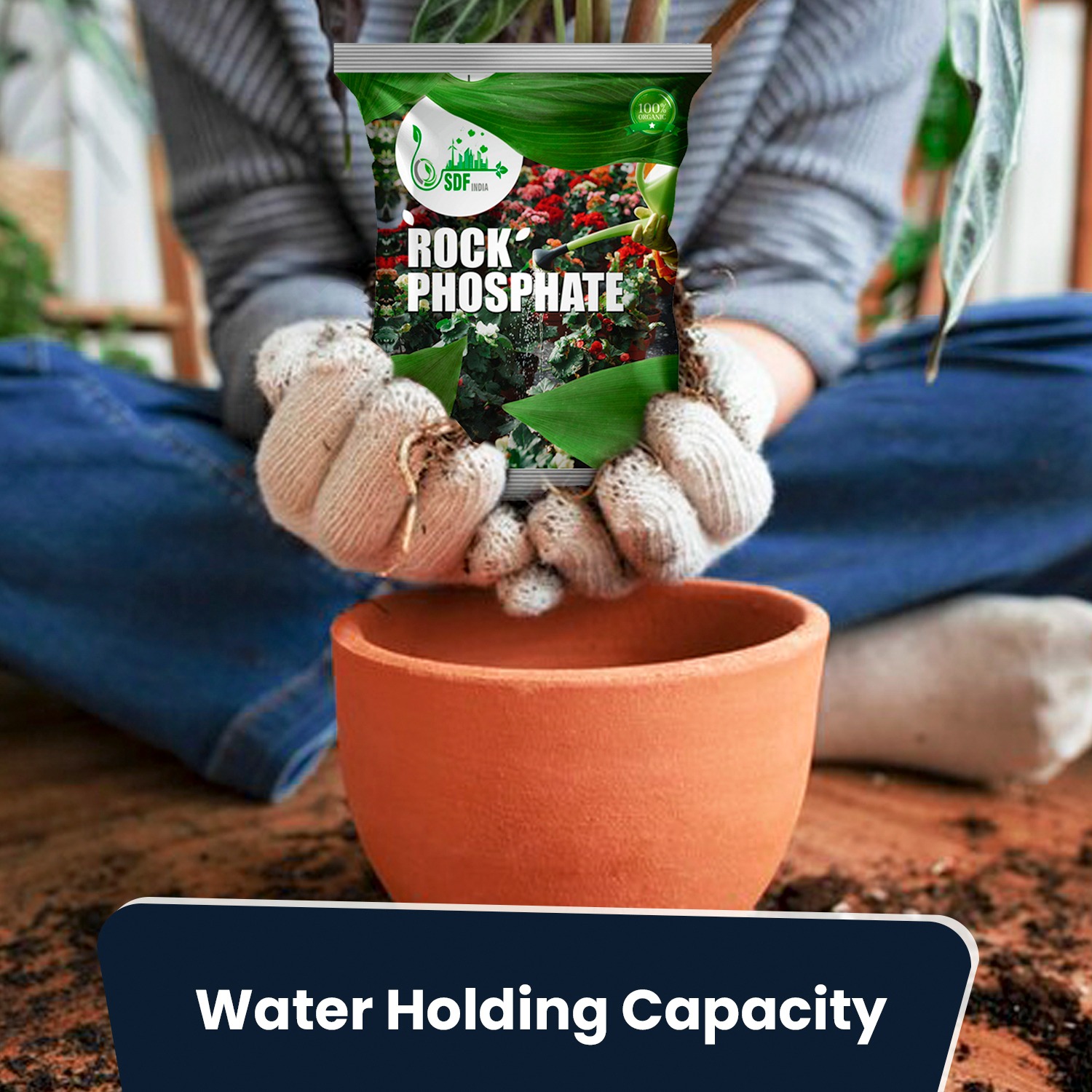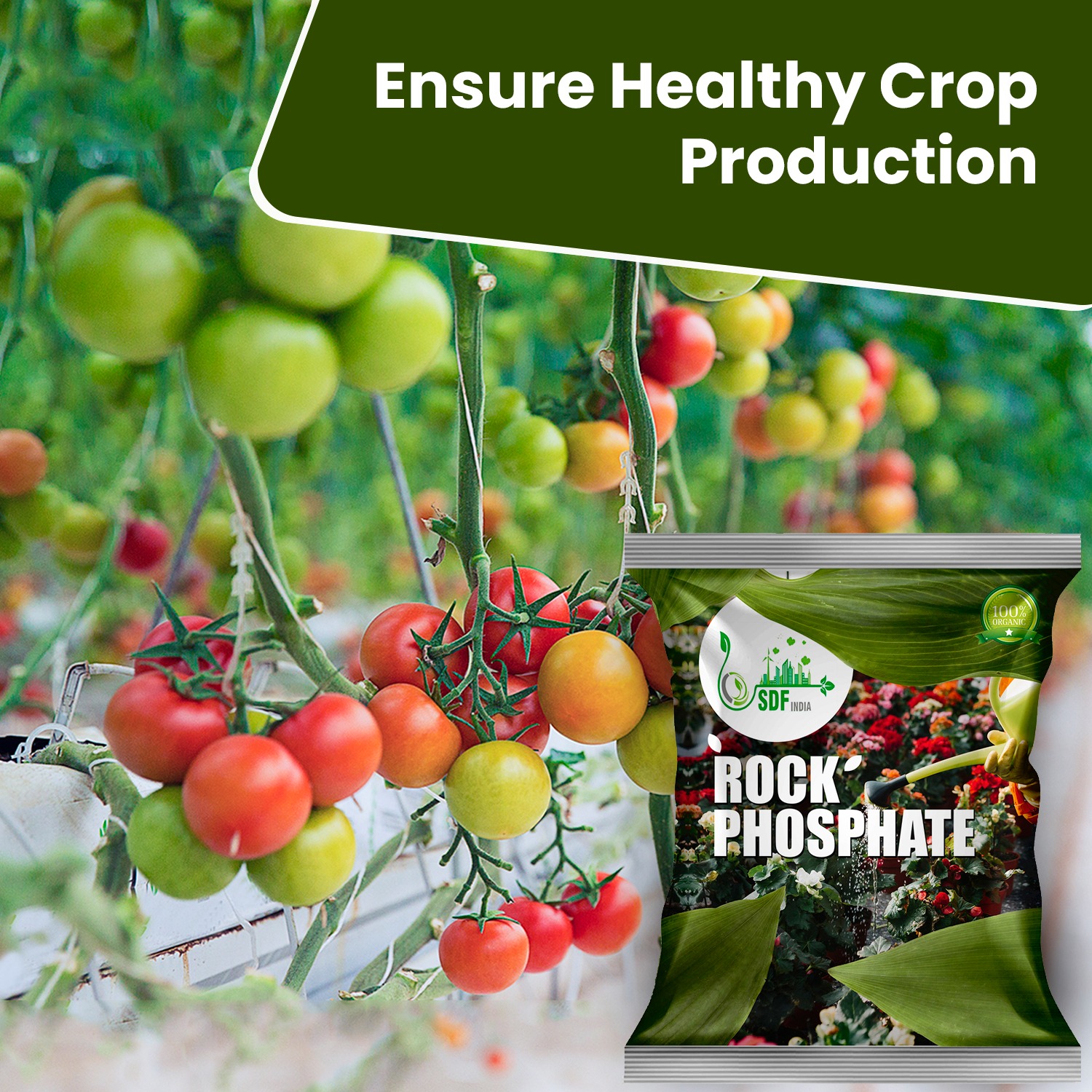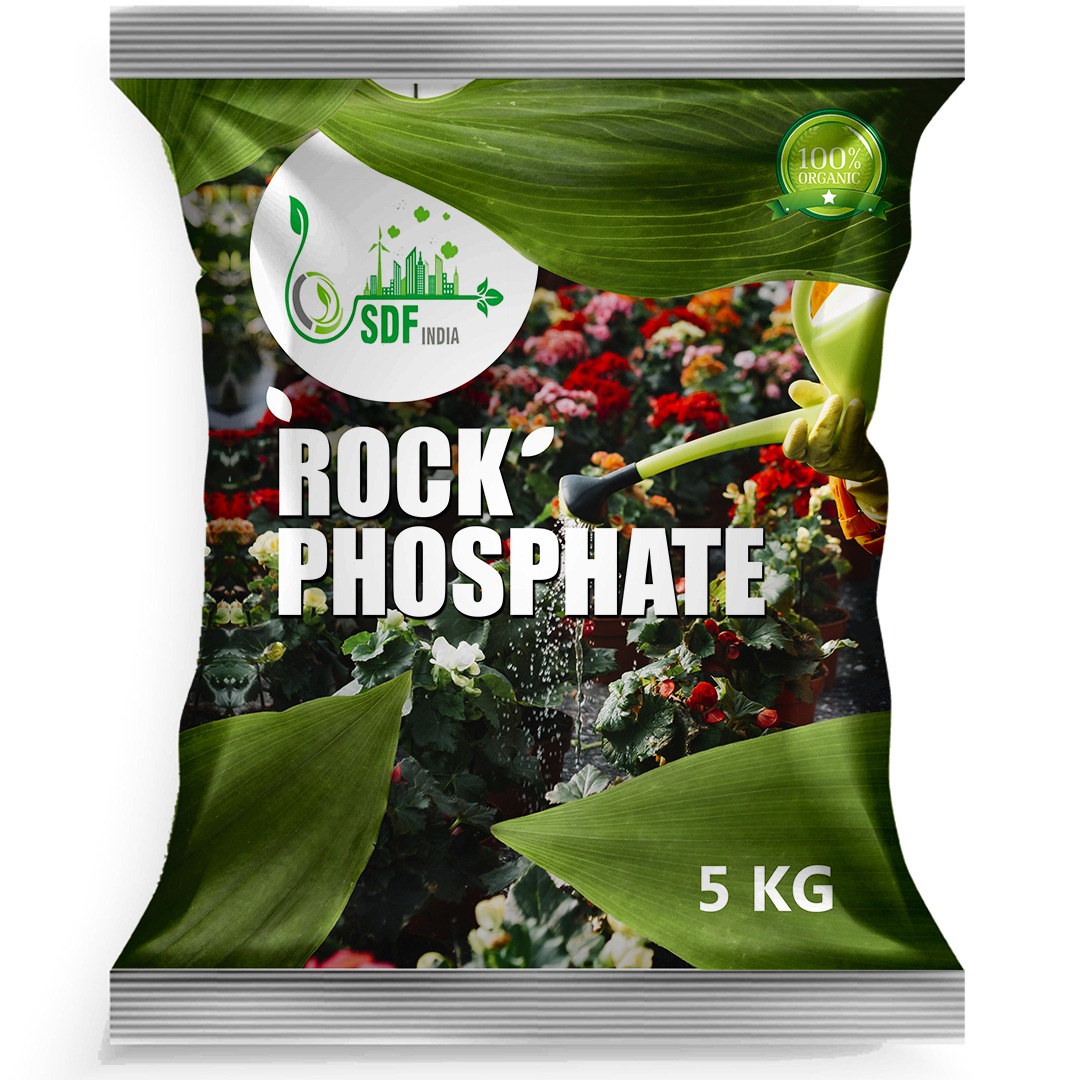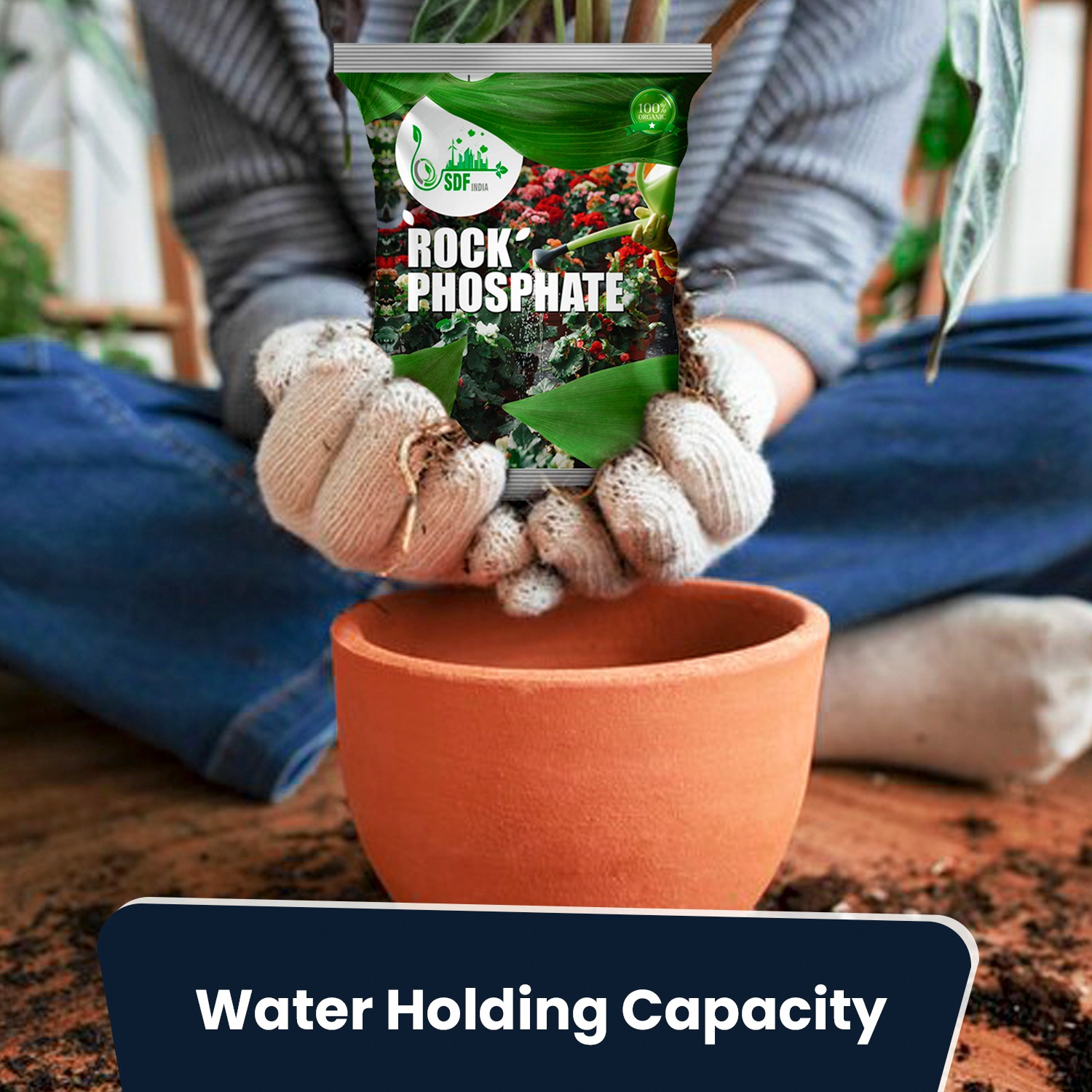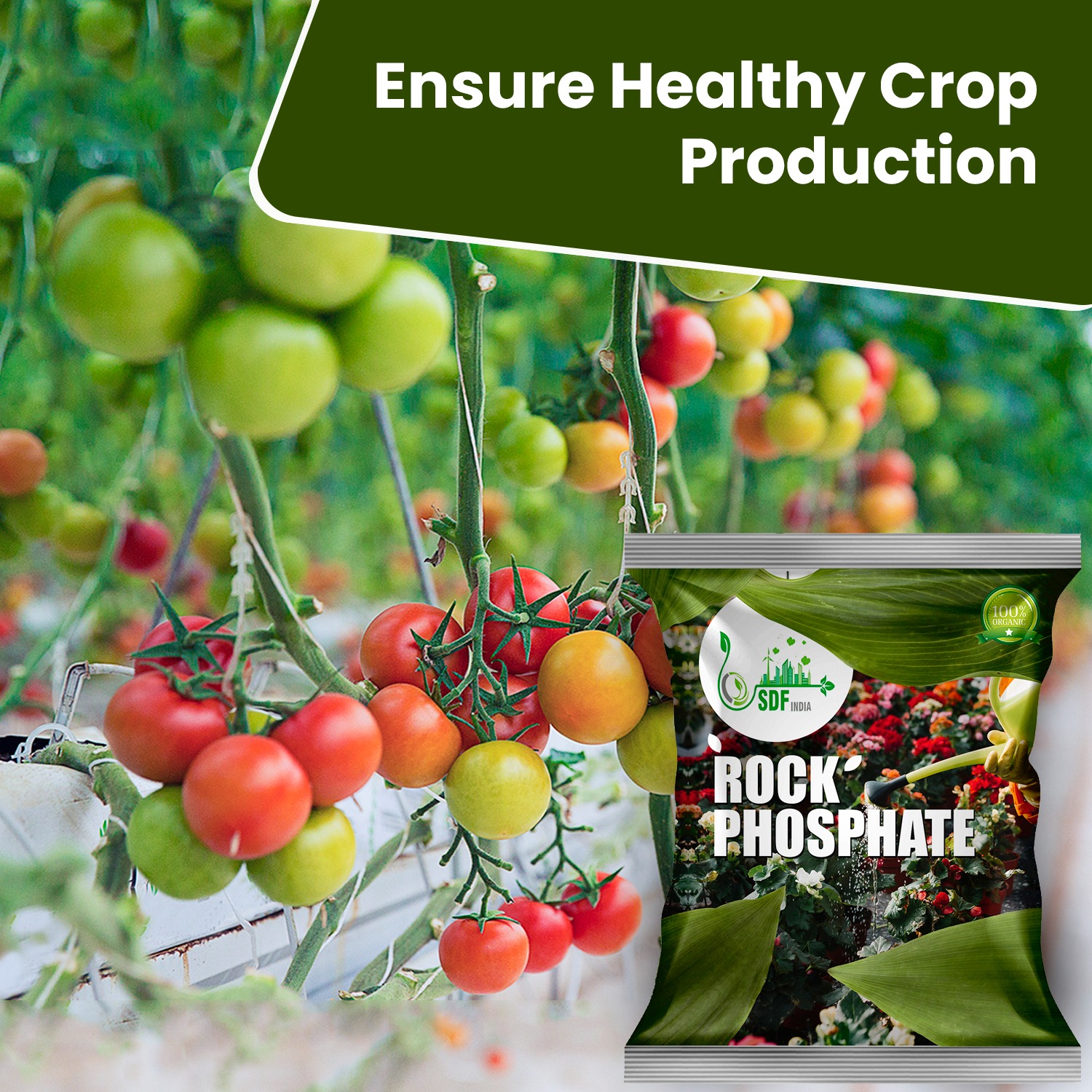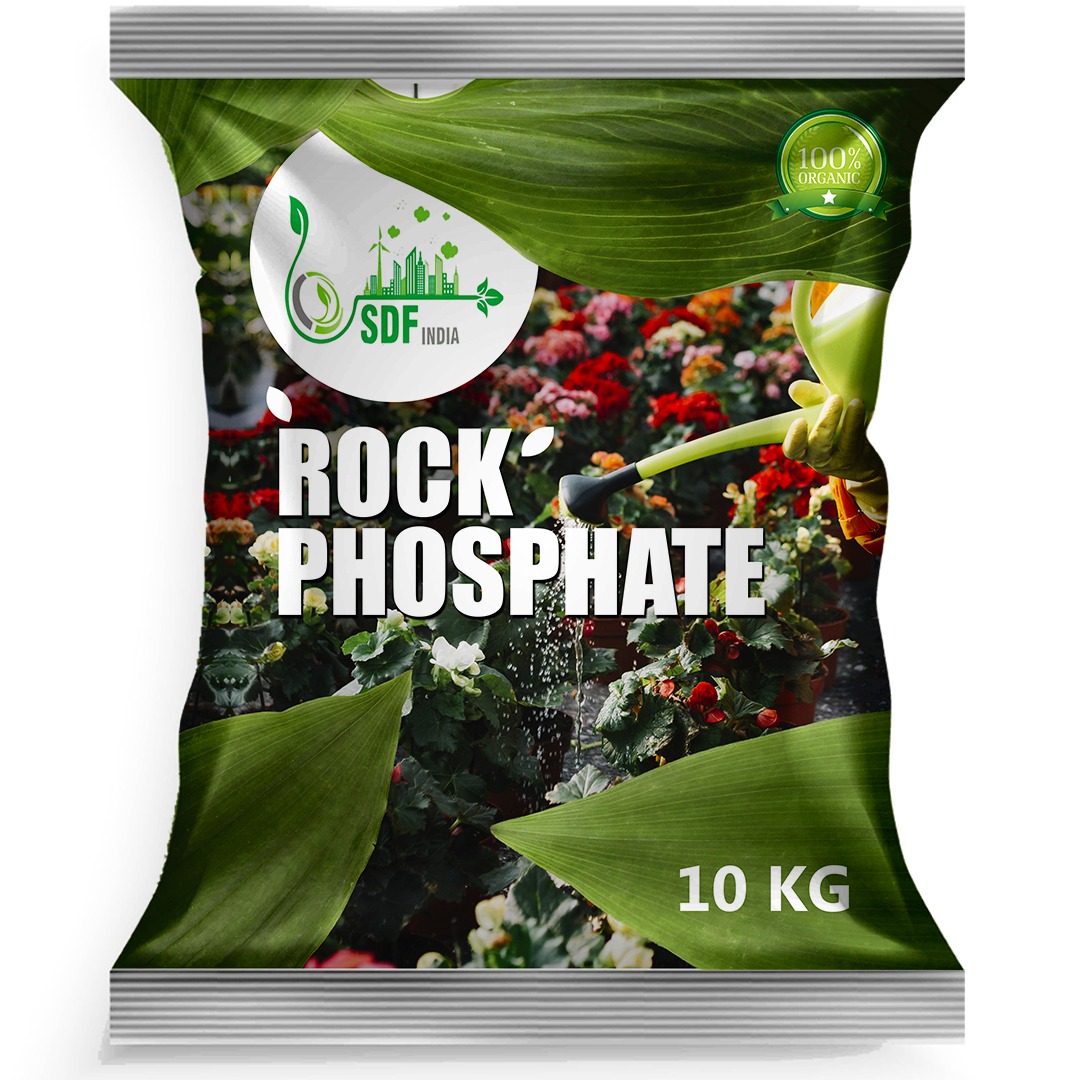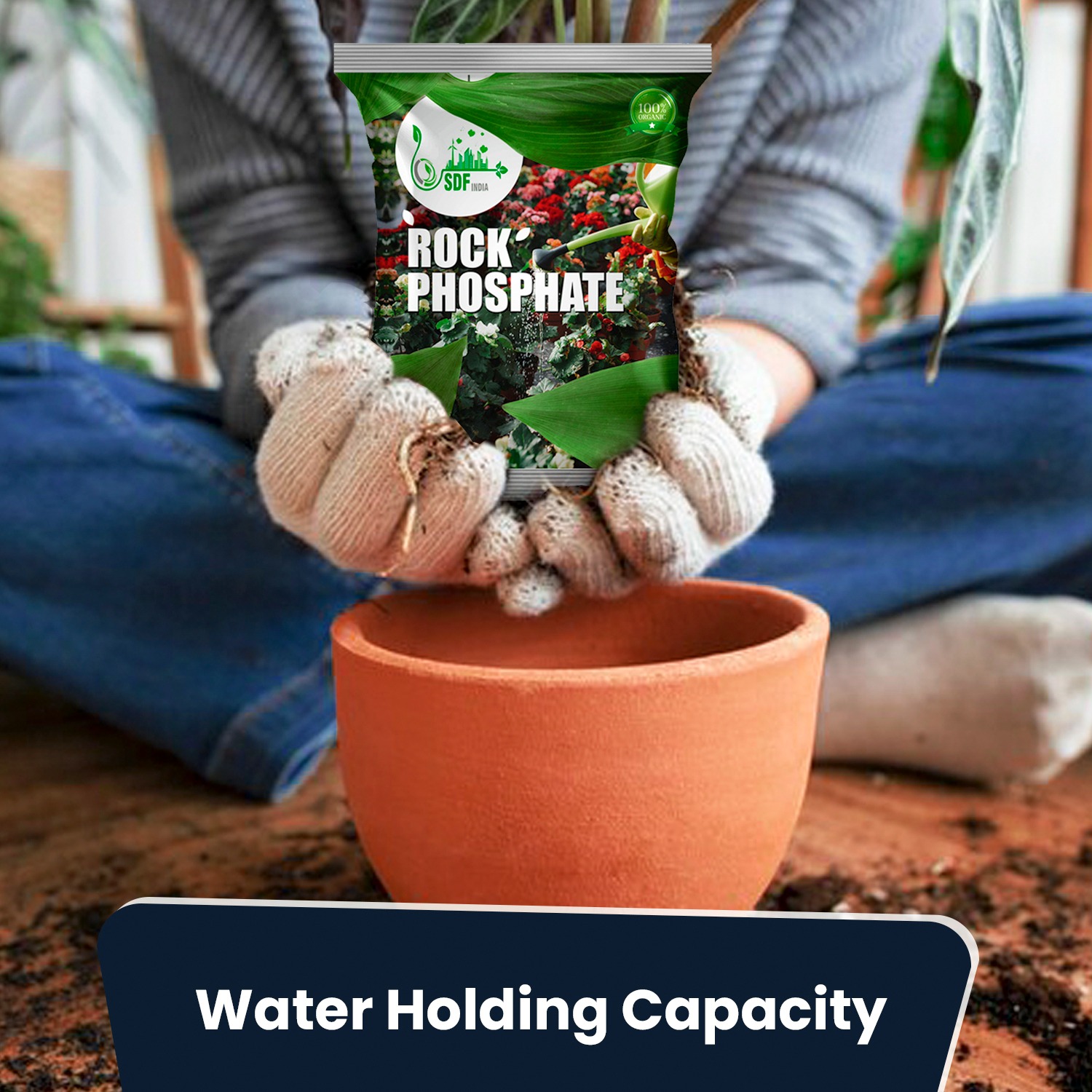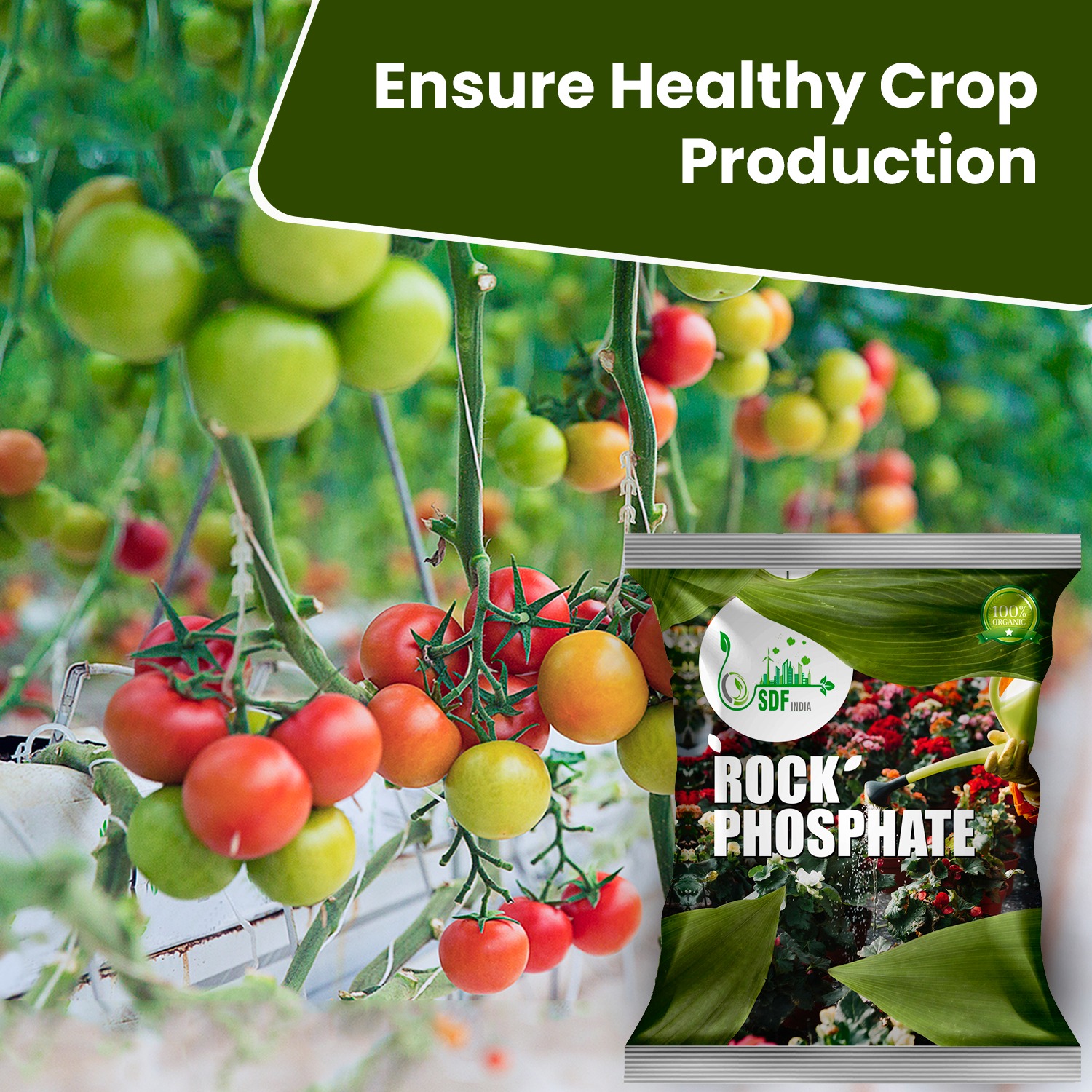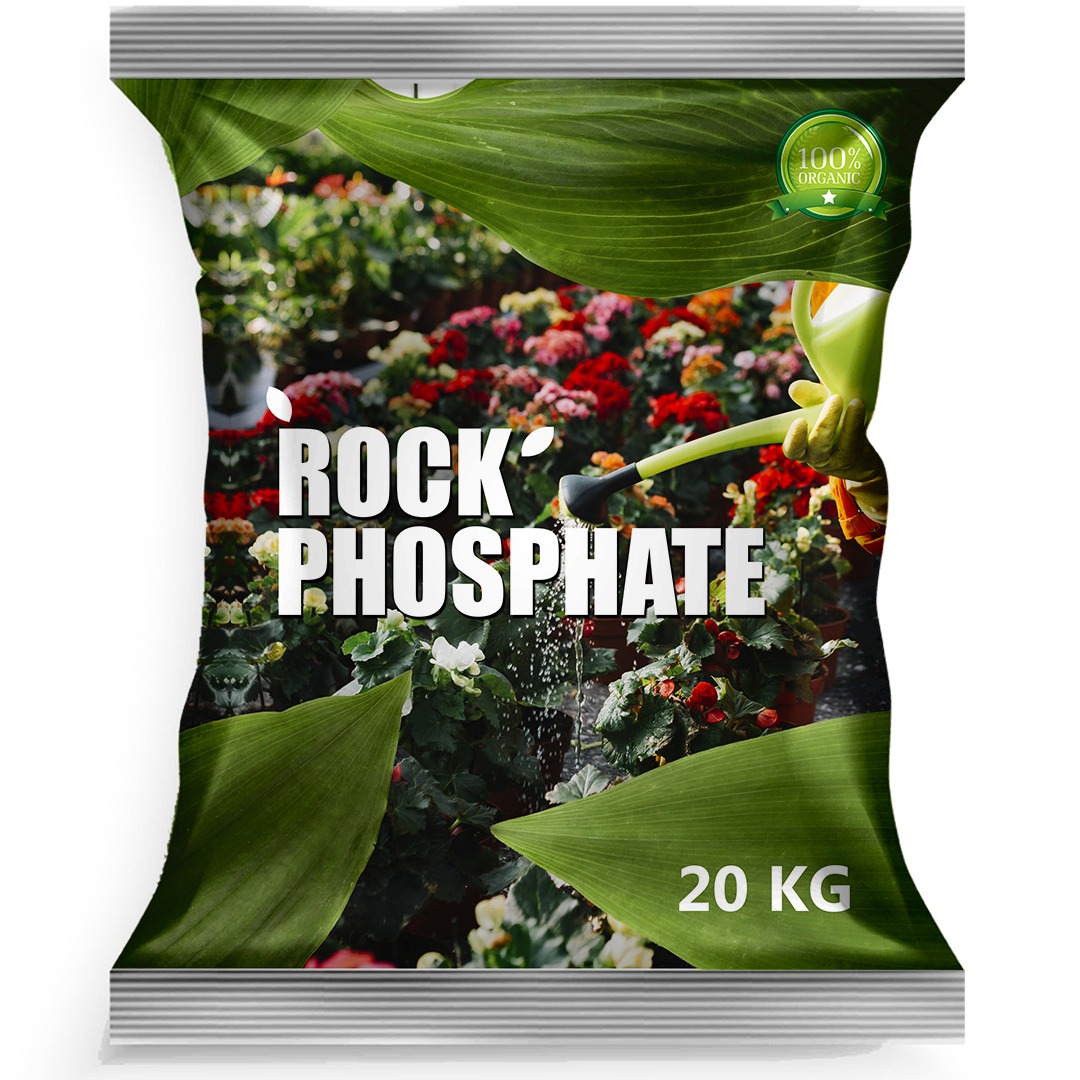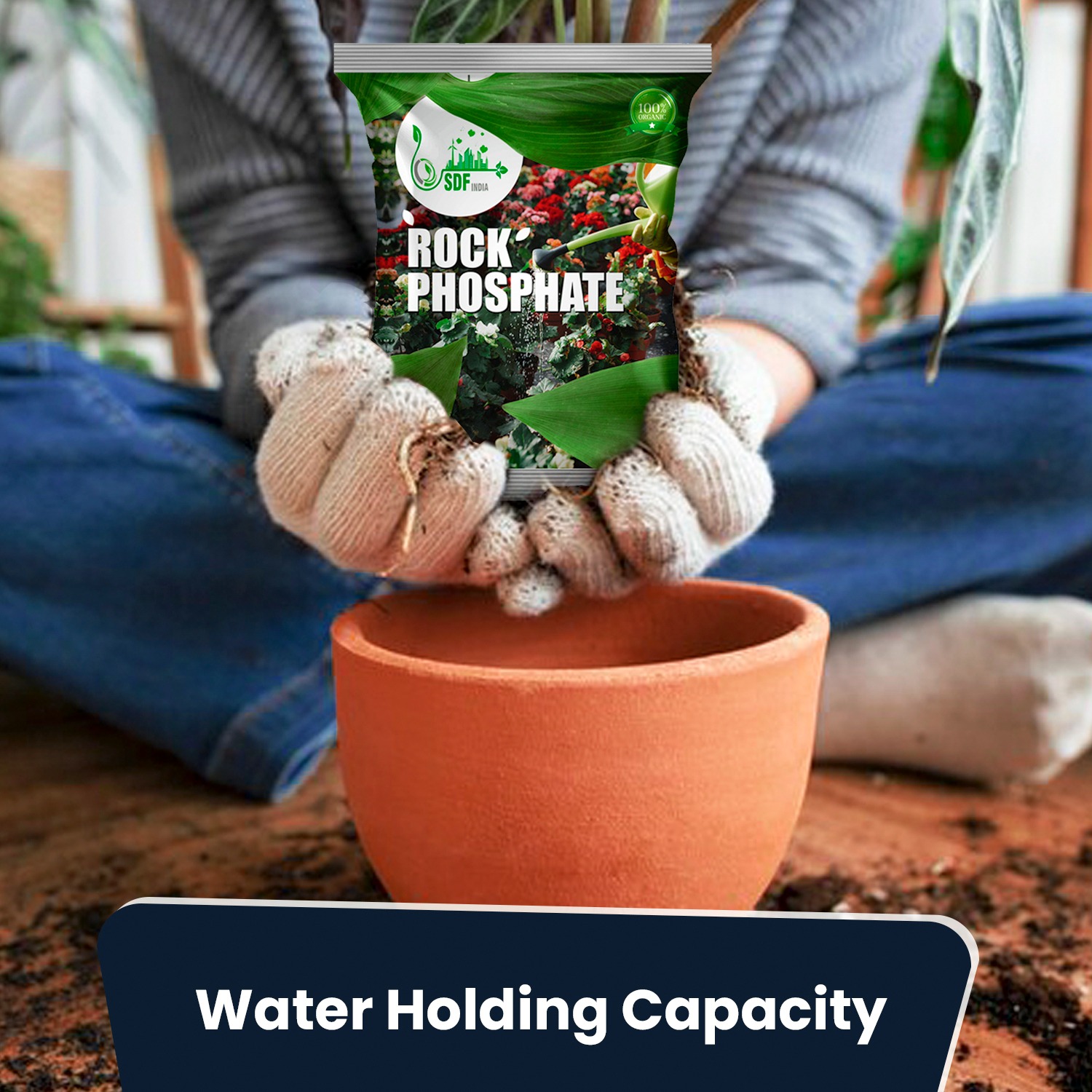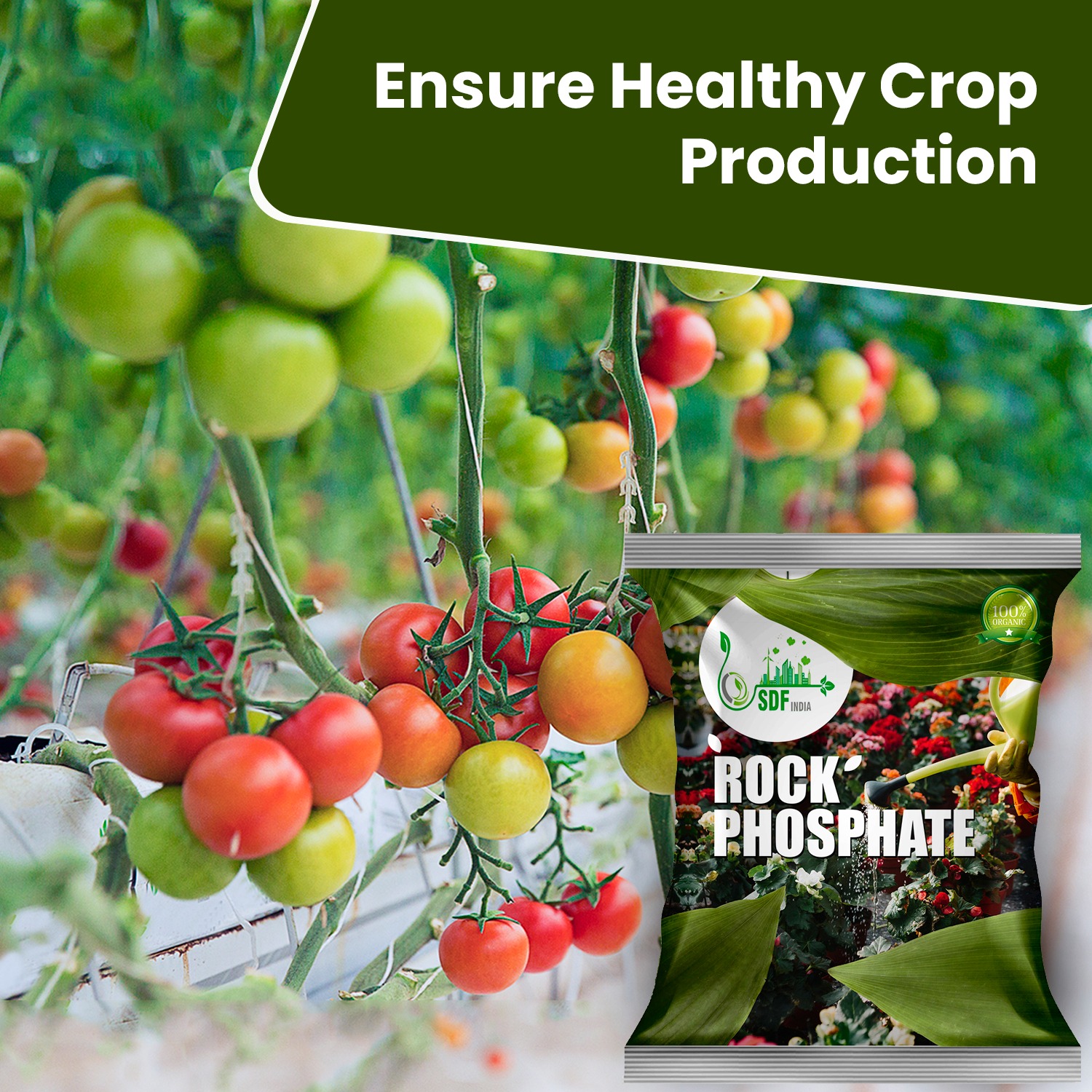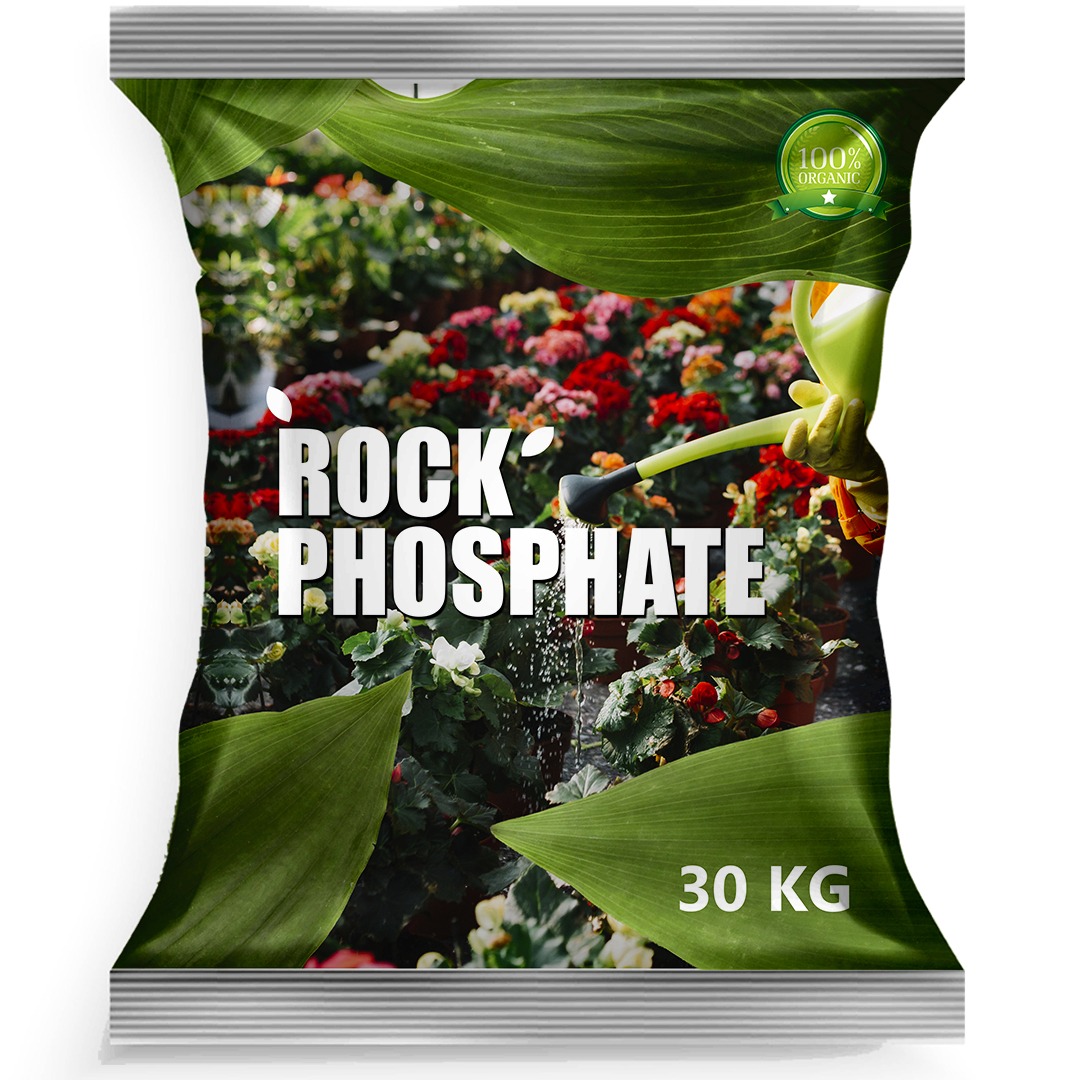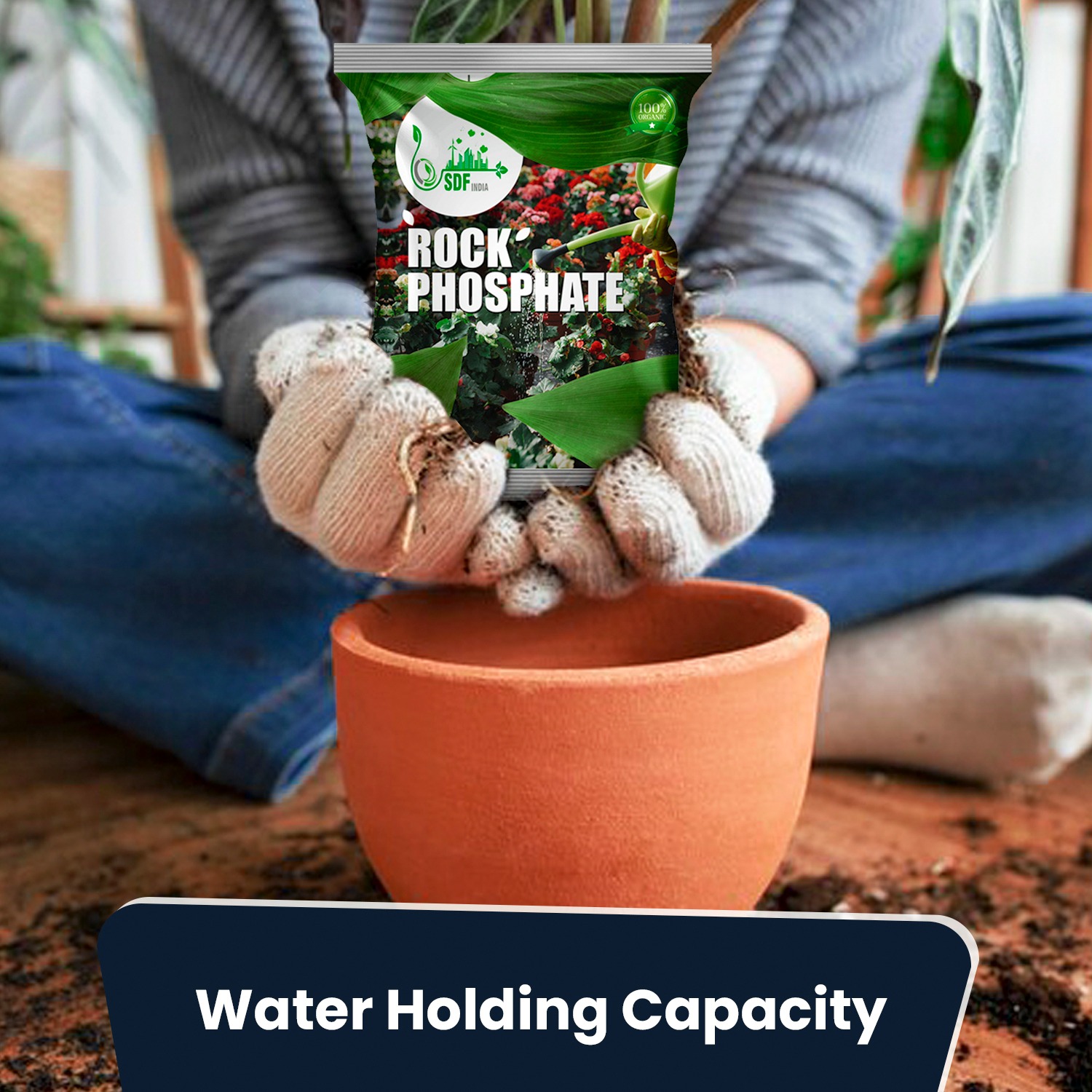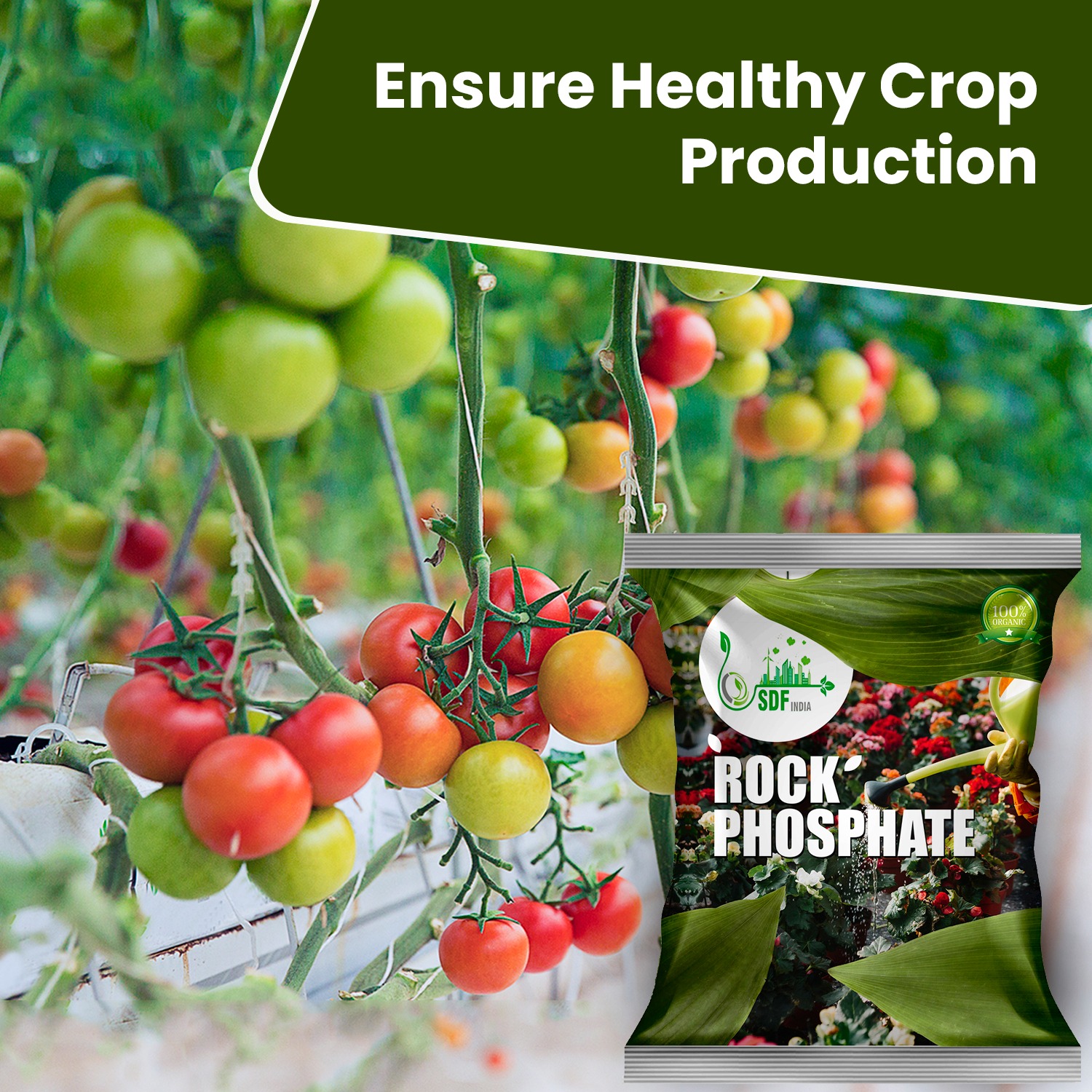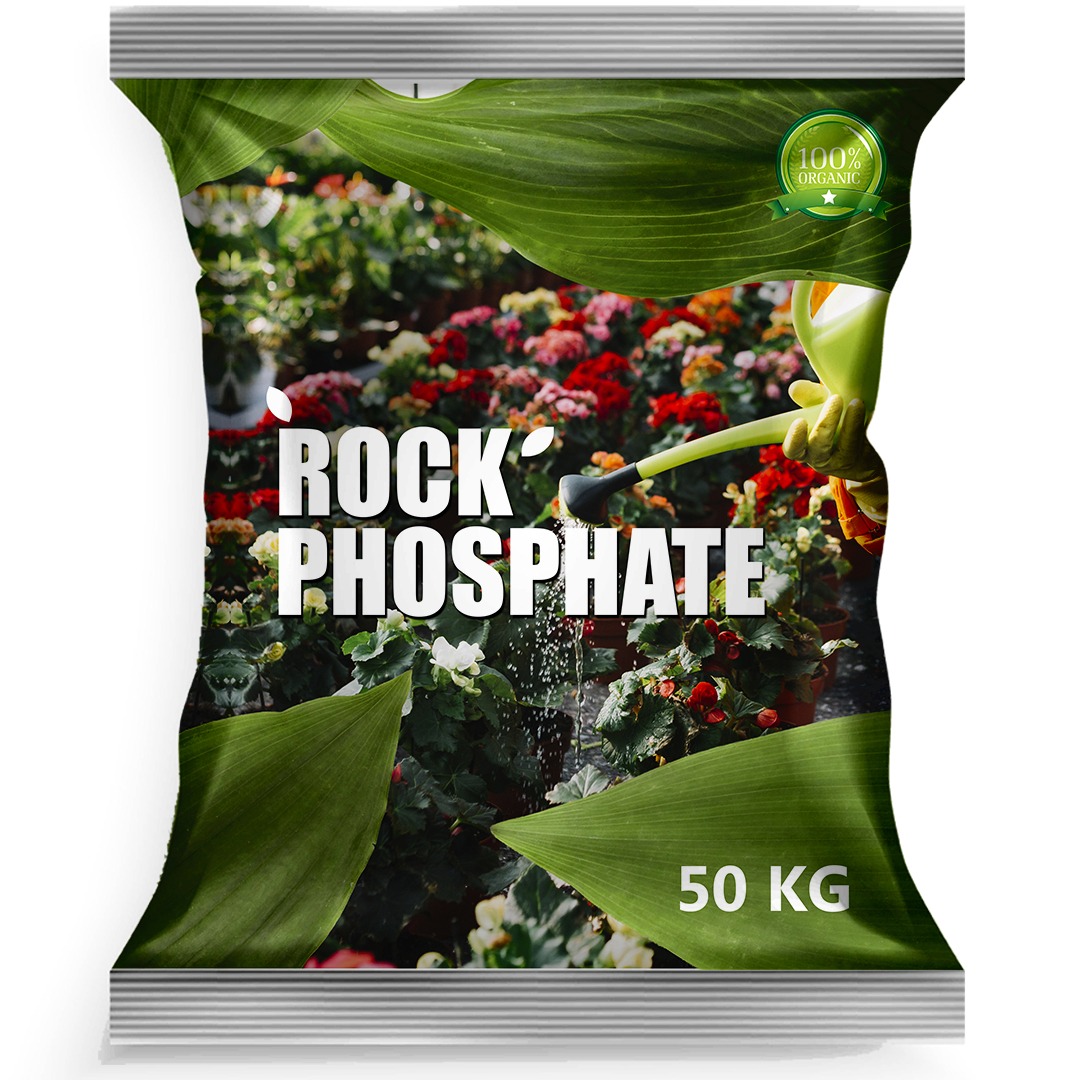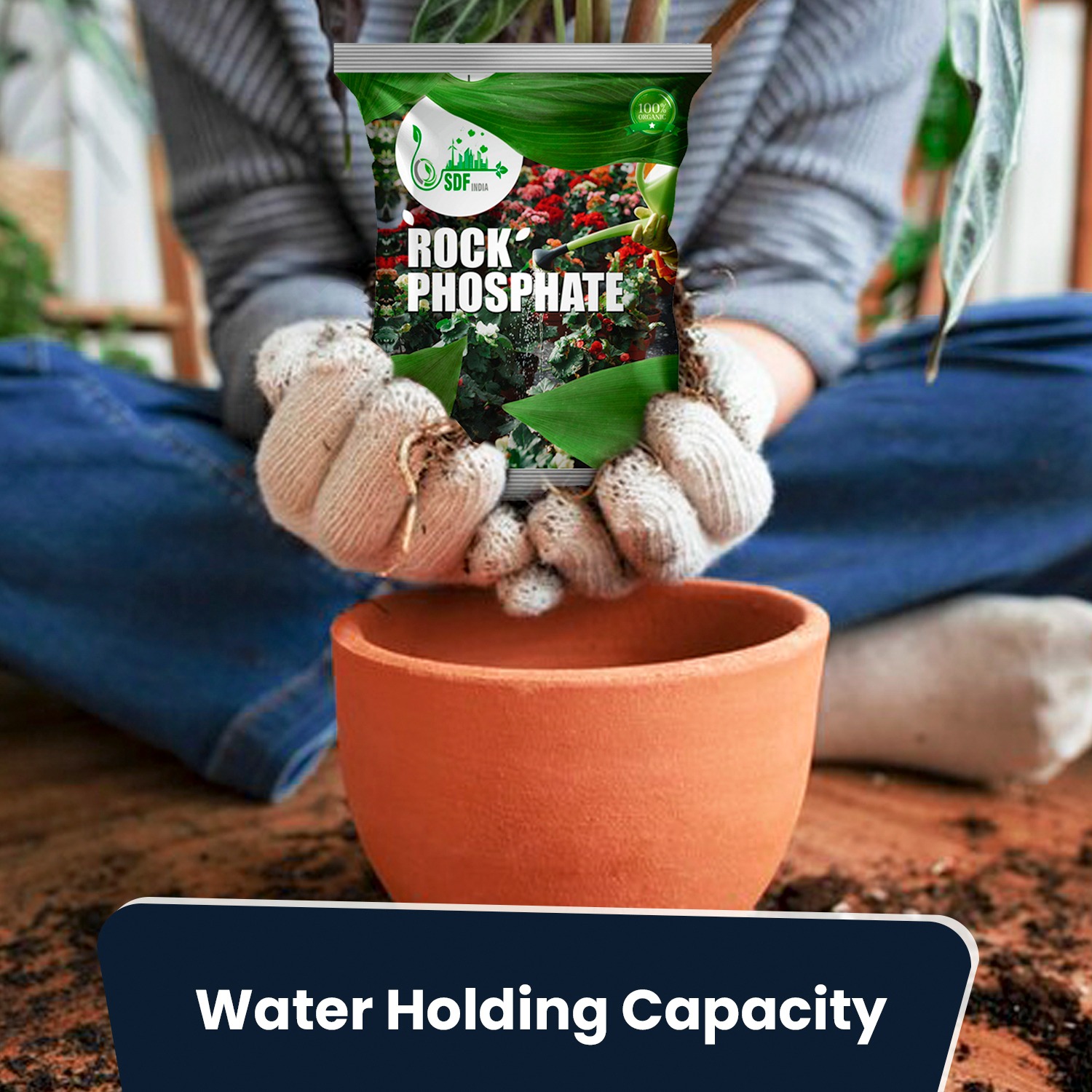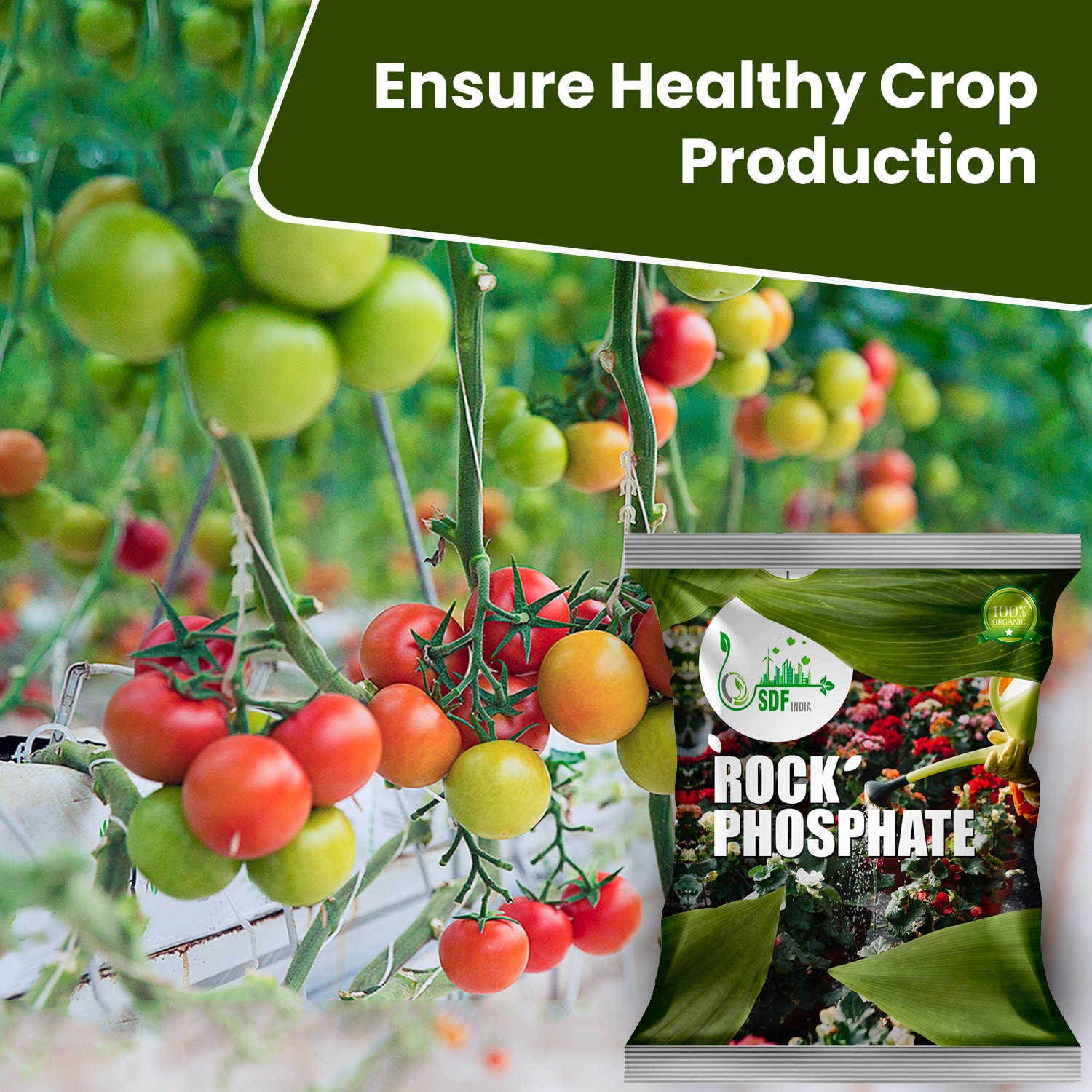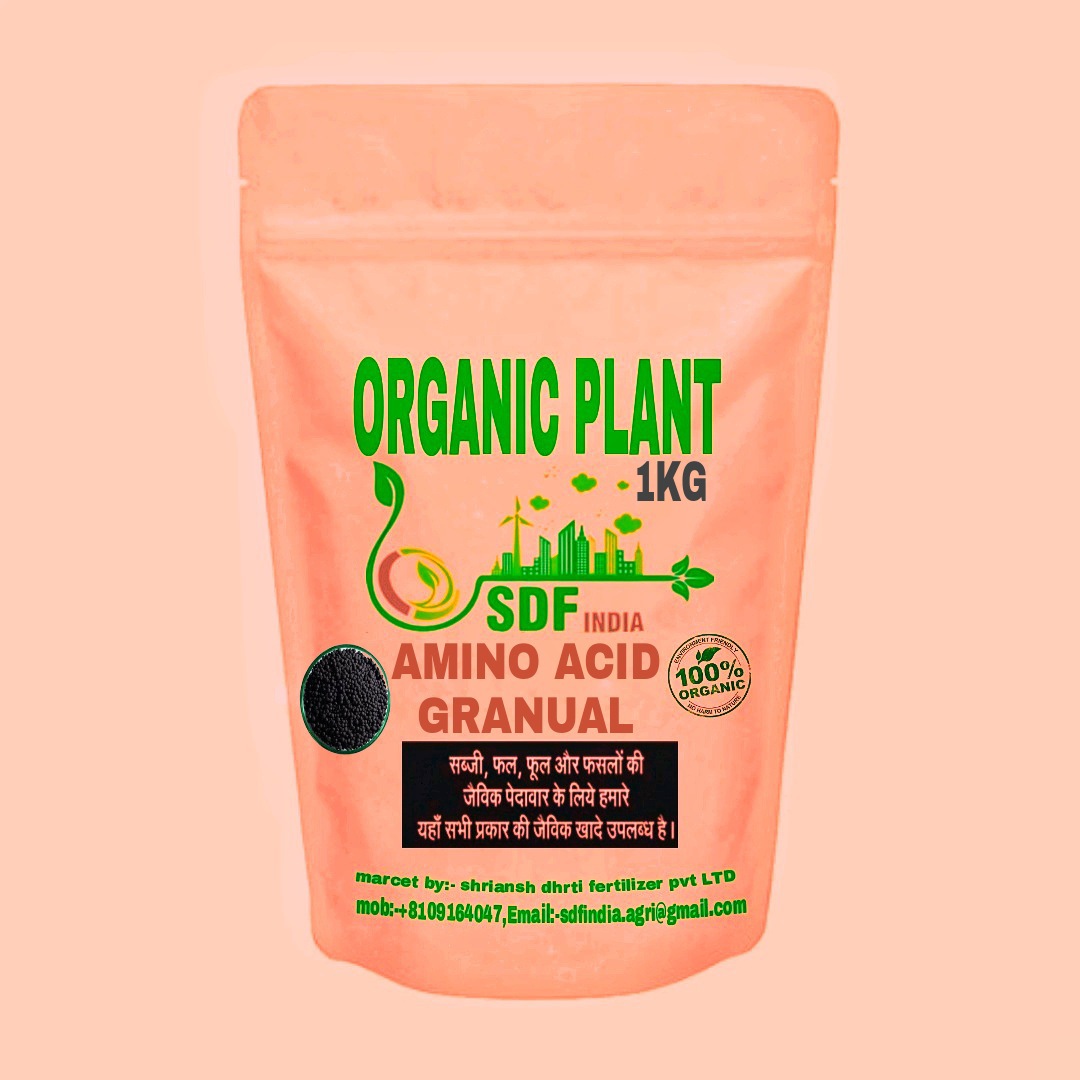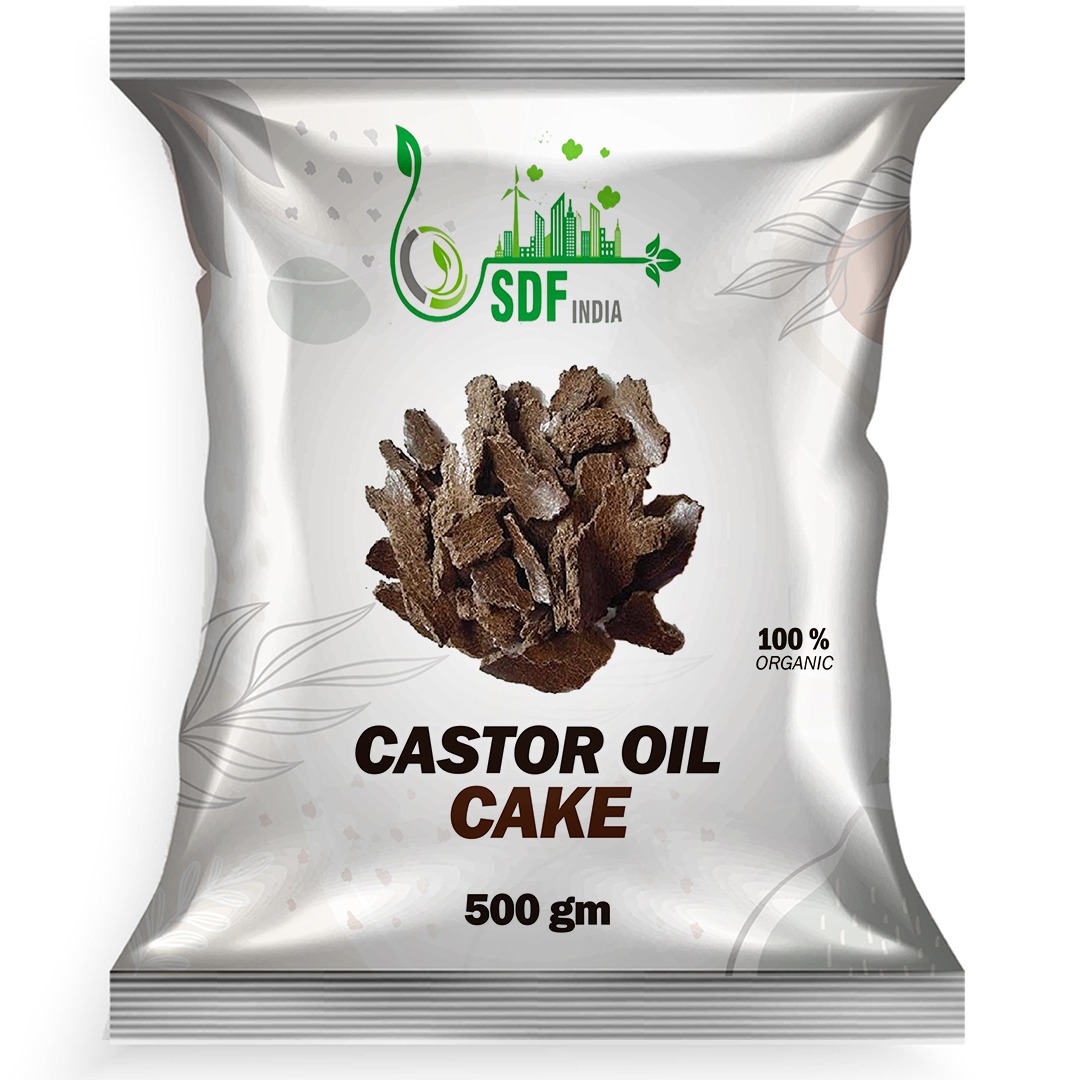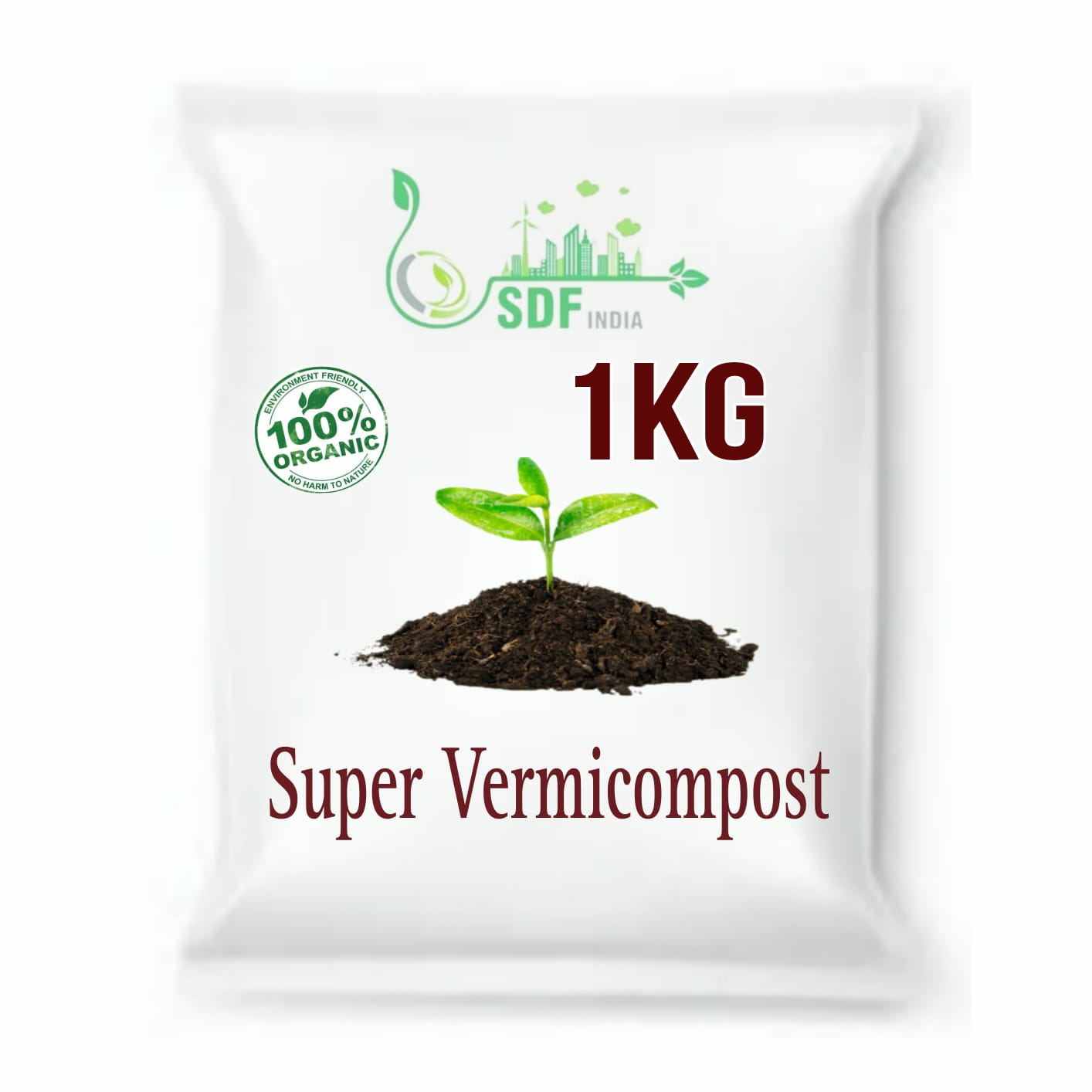Rock phosphate is a natural mineral fertilizer that is composed of the mineral apatite, which is a group of phosphate minerals. It is mined from deposits of sedimentary rocks that contain high concentrations of these minerals. Rock phosphate is commonly used as a source of phosphorus for plant growth and development. Phosphorus is an essential nutrient that is required for the growth and development of plants. It is involved in many important processes such as photosynthesis, energy transfer, and the formation of nucleic acids.
Rock phosphate is often used in organic farming as a natural alternative to chemical fertilizers. It is slowly released into the soil over time, providing a long-lasting source of phosphorus for plants. It is also beneficial for soil health as it can improve the soil's physical properties and increase microbial activity.
However, the availability of phosphorus from rock phosphate is relatively low compared to soluble fertilizers, which can limit its effectiveness in some soils. Additionally, the mining and processing of rock phosphate can have negative environmental impacts, such as soil erosion and water pollution. Therefore, it is important to use rock phosphate in a sustainable and responsible manner.
Rock phosphate is a natural mineral fertilizer that is composed of the mineral apatite, which is a group of phosphate minerals. It is mined from deposits of sedimentary rocks that contain high concentrations of these minerals. Rock phosphate is commonly used as a source of phosphorus for plant growth and development. Phosphorus is an essential nutrient that is required for the growth and development of plants. It is involved in many important processes such as photosynthesis, energy transfer, and the formation of nucleic acids.
Rock phosphate is often used in organic farming as a natural alternative to chemical fertilizers. It is slowly released into the soil over time, providing a long-lasting source of phosphorus for plants. It is also beneficial for soil health as it can improve the soil's physical properties and increase microbial activity.
However, the availability of phosphorus from rock phosphate is relatively low compared to soluble fertilizers, which can limit its effectiveness in some soils. Additionally, the mining and processing of rock phosphate can have negative environmental impacts, such as soil erosion and water pollution. Therefore, it is important to use rock phosphate in a sustainable and responsible manner.
Rock phosphate is a natural mineral fertilizer that is composed of the mineral apatite, which is a group of phosphate minerals. It is mined from deposits of sedimentary rocks that contain high concentrations of these minerals. Rock phosphate is commonly used as a source of phosphorus for plant growth and development. Phosphorus is an essential nutrient that is required for the growth and development of plants. It is involved in many important processes such as photosynthesis, energy transfer, and the formation of nucleic acids.
Rock phosphate is often used in organic farming as a natural alternative to chemical fertilizers. It is slowly released into the soil over time, providing a long-lasting source of phosphorus for plants. It is also beneficial for soil health as it can improve the soil's physical properties and increase microbial activity.
However, the availability of phosphorus from rock phosphate is relatively low compared to soluble fertilizers, which can limit its effectiveness in some soils. Additionally, the mining and processing of rock phosphate can have negative environmental impacts, such as soil erosion and water pollution. Therefore, it is important to use rock phosphate in a sustainable and responsible manner.
Rock phosphate is a natural mineral fertilizer that is composed of the mineral apatite, which is a group of phosphate minerals. It is mined from deposits of sedimentary rocks that contain high concentrations of these minerals. Rock phosphate is commonly used as a source of phosphorus for plant growth and development. Phosphorus is an essential nutrient that is required for the growth and development of plants. It is involved in many important processes such as photosynthesis, energy transfer, and the formation of nucleic acids.
Rock phosphate is often used in organic farming as a natural alternative to chemical fertilizers. It is slowly released into the soil over time, providing a long-lasting source of phosphorus for plants. It is also beneficial for soil health as it can improve the soil's physical properties and increase microbial activity.
However, the availability of phosphorus from rock phosphate is relatively low compared to soluble fertilizers, which can limit its effectiveness in some soils. Additionally, the mining and processing of rock phosphate can have negative environmental impacts, such as soil erosion and water pollution. Therefore, it is important to use rock phosphate in a sustainable and responsible manner.
Rock phosphate is a natural mineral fertilizer that is composed of the mineral apatite, which is a group of phosphate minerals. It is mined from deposits of sedimentary rocks that contain high concentrations of these minerals. Rock phosphate is commonly used as a source of phosphorus for plant growth and development. Phosphorus is an essential nutrient that is required for the growth and development of plants. It is involved in many important processes such as photosynthesis, energy transfer, and the formation of nucleic acids.
Rock phosphate is often used in organic farming as a natural alternative to chemical fertilizers. It is slowly released into the soil over time, providing a long-lasting source of phosphorus for plants. It is also beneficial for soil health as it can improve the soil's physical properties and increase microbial activity.
However, the availability of phosphorus from rock phosphate is relatively low compared to soluble fertilizers, which can limit its effectiveness in some soils. Additionally, the mining and processing of rock phosphate can have negative environmental impacts, such as soil erosion and water pollution. Therefore, it is important to use rock phosphate in a sustainable and responsible manner.
Rock phosphate is a natural mineral fertilizer that is composed of the mineral apatite, which is a group of phosphate minerals. It is mined from deposits of sedimentary rocks that contain high concentrations of these minerals. Rock phosphate is commonly used as a source of phosphorus for plant growth and development. Phosphorus is an essential nutrient that is required for the growth and development of plants. It is involved in many important processes such as photosynthesis, energy transfer, and the formation of nucleic acids.
Rock phosphate is often used in organic farming as a natural alternative to chemical fertilizers. It is slowly released into the soil over time, providing a long-lasting source of phosphorus for plants. It is also beneficial for soil health as it can improve the soil's physical properties and increase microbial activity.
However, the availability of phosphorus from rock phosphate is relatively low compared to soluble fertilizers, which can limit its effectiveness in some soils. Additionally, the mining and processing of rock phosphate can have negative environmental impacts, such as soil erosion and water pollution. Therefore, it is important to use rock phosphate in a sustainable and responsible manner.
Rock phosphate is a natural mineral fertilizer that is composed of the mineral apatite, which is a group of phosphate minerals. It is mined from deposits of sedimentary rocks that contain high concentrations of these minerals. Rock phosphate is commonly used as a source of phosphorus for plant growth and development. Phosphorus is an essential nutrient that is required for the growth and development of plants. It is involved in many important processes such as photosynthesis, energy transfer, and the formation of nucleic acids.
Rock phosphate is often used in organic farming as a natural alternative to chemical fertilizers. It is slowly released into the soil over time, providing a long-lasting source of phosphorus for plants. It is also beneficial for soil health as it can improve the soil's physical properties and increase microbial activity.
However, the availability of phosphorus from rock phosphate is relatively low compared to soluble fertilizers, which can limit its effectiveness in some soils. Additionally, the mining and processing of rock phosphate can have negative environmental impacts, such as soil erosion and water pollution. Therefore, it is important to use rock phosphate in a sustainable and responsible manner.

